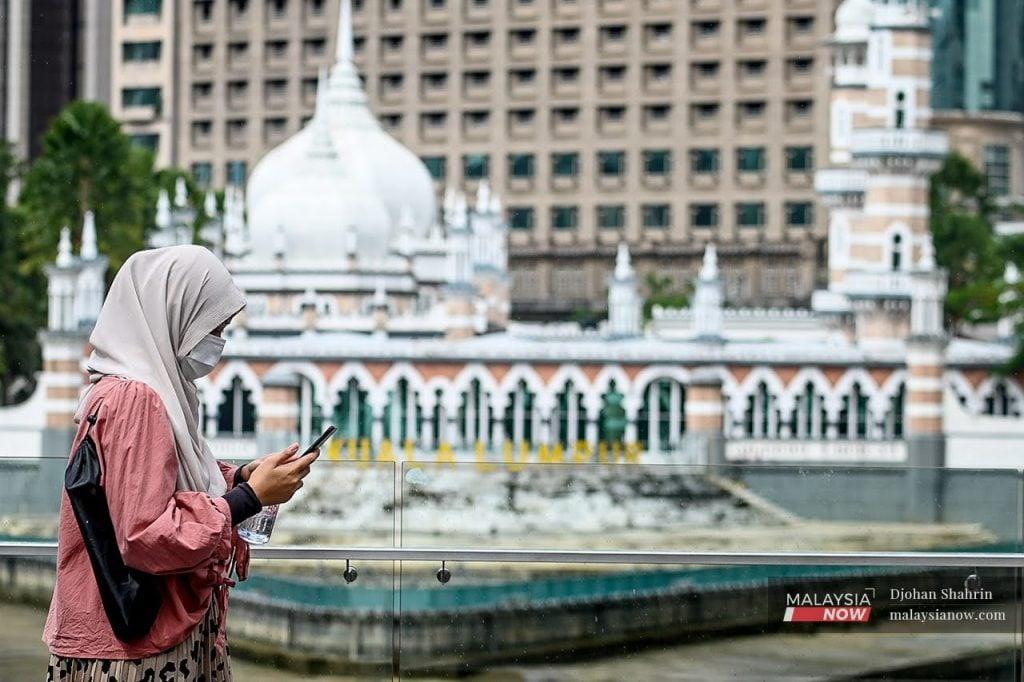Modern amenities and Islam
Aswaja president Zamihan Mat Zin should learn the difference between being innovative and being pedantic.
This letter is in response to the statement by Malaysian Sunni Organisation (Aswaja) president Zamihan Mat Zin, in which he questioned the inclusion of e-commerce website Shopee as a platform for Muslims to pay their zakat, or alms.
In 2006, a case made its way to Malaysia’s court system, seeking to allow three children to wear a serban (“turban”) rather than a songkok. The three-man panel of judges ruling on the subject had this to say: “From what we can determine, the Quran does not mention the serban. I accept that the Prophet wore a turban. But he also rode a camel, built his house and mosque with clay walls and roof of leaves of date palms, and brushed his teeth with the twig of a plant. Does that make the riding of a camel a more pious deed than travelling in an aeroplane? Is it seemly to use the same materials that the Prophet did when building new houses and mosques now?”
It seems that even today, 14 years later, this so-called “Islamic” mindset of challenging the pace of technological advancement, even when faced with a pandemic, continues.
When the movement control orders to deal with the Covid-19 pandemic were implemented, the government encouraged people to take measures to keep themselves safe.
One such department that utilised innovative measures was the religious affairs ministry, where marriage vows were allowed to be conducted via Skype and with reception ceremonies put on hold until better times.
At the same time, when Aidilfitri approached, the religious leaders of the country decided that the zakat fitrah – the compulsory tithe that must be paid by all Muslims who are able to do so – would be conducted online. Those who could contribute had the option not only of using online banking, but also paying with e-wallets such as Boost, Grab, and even Touch n Go.
Grab took it one step further by allowing its drivers to conduct this ritual payment through their app this year. Thus, when Zamihan decided it was necessary to question whether we can allow a non-Muslim company like Shopee to collect zakat, where has he been living for the past few years?
Are the shareholders of Malaysian banks all Muslims to allow for online payments of zakat via their online banking facilities? What about Grab? What about Boost? What about Touch n Go? What exactly is the baseline in determining whether a company, bank, e-wallet, or even online web portal is “Islamic” enough to conduct halal transfers of money?
Let us not forget that Zamihan has a history of being a rabid radical – recall that he told Malaysian Muslims not to share laundromats with non-Muslims in 2017. The statement was so ridiculous that no less a personage than His Majesty the Sultan of Johor called him an “empty vessel”. Zamihan has been banned from preaching in Johor ever since.
Zamihan was also probed for sedition for his statement and temporarily banned by the Selangor Religious Department (Jais) on orders from His Highness the Sultan of Selangor from preaching in the state (speaking of which, did Jais revoke the ban? Is he once again preaching in Selangor?) – all of which led to him losing his job at the Department of Islamic Development Malaysia (Jakim) in 2018. Let’s not forget that he wasn’t exactly a fan of people taking their marriage vows online either, telling couples to wait until after the MCO because “they wouldn’t die if they didn’t get married”.
In this critical pandemic era, where a vaccine will only be rolled out in the first quarter of the coming year, do we still need such old-world mentalities running amok in this nation? Do we need such a person spewing hatred and doubt when others are working to ease Malaysians into the new normal? Other leaders are trying to allay concerns and gently nudge people towards this new reality – so why is Zamihan sniping?
There are many things that we do online nowadays, and payments that have been made online for more than two decades already – and whether you use online banking, e-wallets, apps, or the zakat web portals themselves, these are merely different streams that lead to the same sea: the respective zakat agencies.
In fact, it is these zakat agencies that have muftis in their respective states who can give advice on such modern matters and methods to central authorities like Bank Negara Malaysia, where the pronouncements will then trickle on down to the rest of the country’s financial network.
All these bodies are far more learned than Zamihan, and they have all recognised the viability of using technology – including the internet, online transactions, and e-wallets – to push forward moves to bring Islamic finance and the respective agencies to the forefront of innovation.
And by the way, has Aswaja not had a rather active Facebook account since 2013? We have to wonder, who runs that social media platform – are they Muslim too? So, unless Zamihan and his supporters have a stock of gold and silver dinars which they will use to buy daily groceries from “Buy Muslim First” shops which accept them as legal tender while building a Muslim-owned social media platform and dumping YouTube and Facebook, he really has no legs to stand on under that jubah of his.
The views expressed in this article are those of the author(s) and do not necessarily reflect the position of MalaysiaNow.
Subscribe to our newsletter
To be updated with all the latest news and analyses daily.
